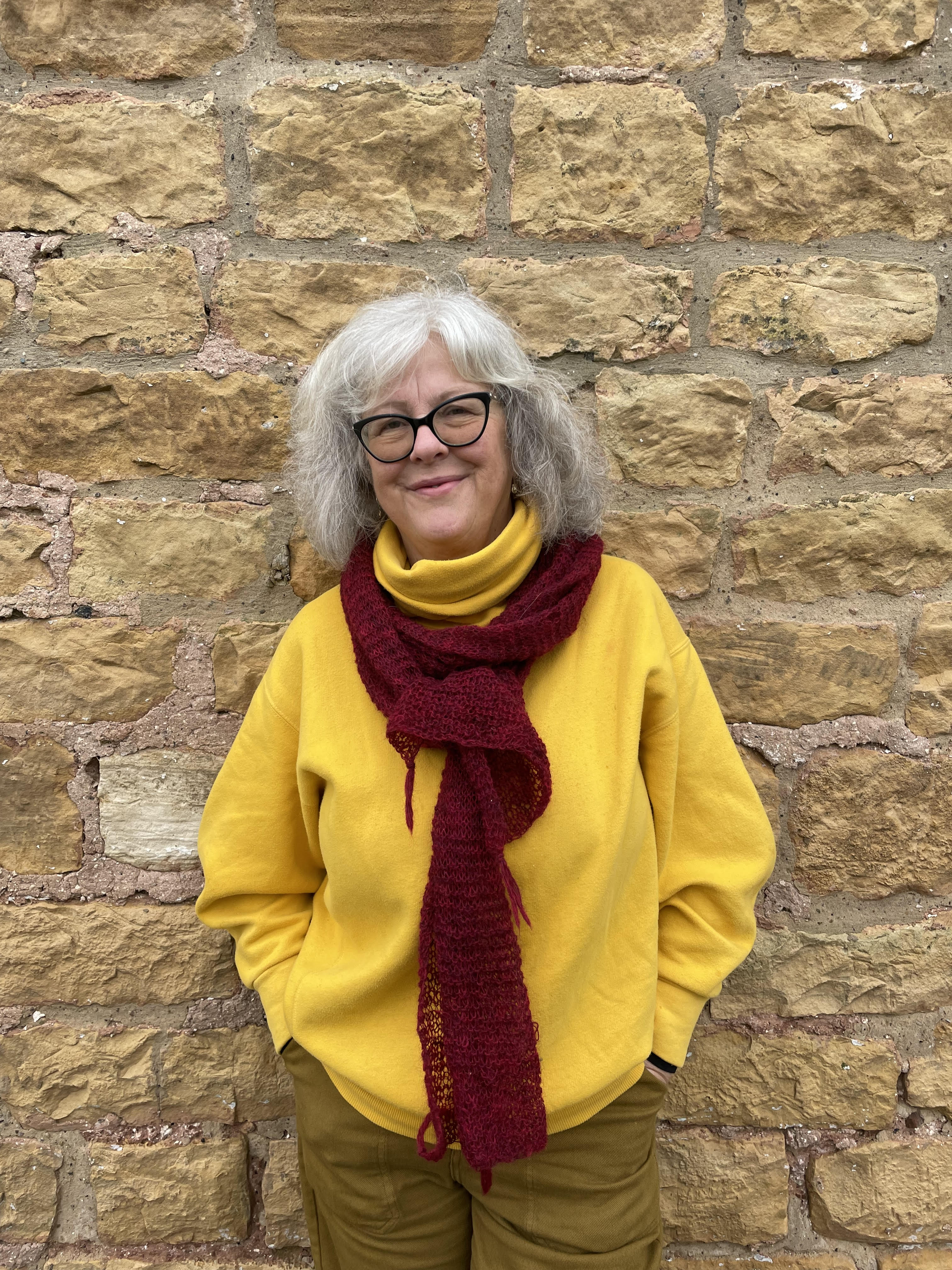'I threw the javelin that struck my friend's head – and only forgave myself decades later'
Lis Cashin tells us she spent decades feeling responsible for the death of her school friend, Sammy
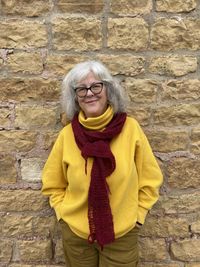

Sign up to our free daily email for the latest royal and entertainment news, interesting opinion, expert advice on styling and beauty trends, and no-nonsense guides to the health and wellness questions you want answered.
You are now subscribed
Your newsletter sign-up was successful
Want to add more newsletters?

Daily (Mon-Sun)
woman&home Daily
Get all the latest beauty, fashion, home, health and wellbeing advice and trends, plus all the latest celebrity news and more.

Monthly
woman&home Royal Report
Get all the latest news from the Palace, including in-depth analysis, the best in royal fashion, and upcoming events from our royal experts.

Monthly
woman&home Book Club
Foster your love of reading with our all-new online book club, filled with editor picks, author insights and much more.

Monthly
woman&home Cosmic Report
Astrologer Kirsty Gallagher explores key astrological transits and themes, meditations, practices and crystals to help navigate the weeks ahead.
Forgiving yourself can often be more difficult than forgiving other people, but it's an vital step in helping us move forward.
Lis Cashin, 55, from Buckinghamshire, is an author and mental health consultant. Her memoir This is Me is out now. Lis spent decades feeling responsible for the death of her friend, after she threw the javelin that hit her, and shares her journey to forgiveness here.
"As a 13-year-old, my teenage life was far from easy. I didn’t get on with my stepdad and was bullied at my girls’ grammar school. But on 15 July 1983, it was sports day and I was proud to have been picked to throw javelin for my house team, and determined to win a medal," Lis remembers.
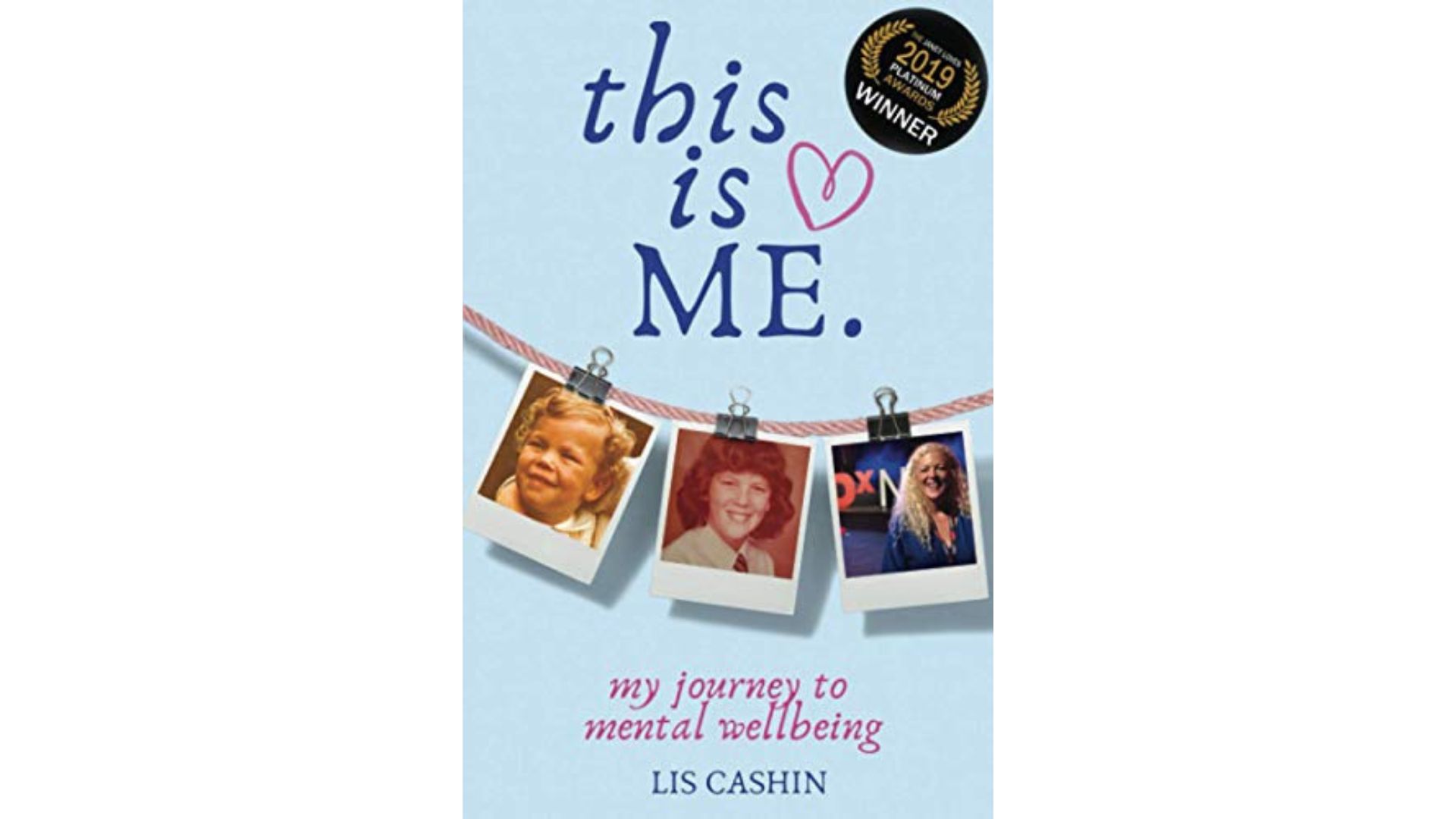
Lis' book discusses Sammy's tragic accident and its affect on her, and offers insights she has gained and practices she has learned that can give support and a roadmap to others who want to transform their own mental wellbeing and live happier and more fulfilled lives.
"When it was my turn to throw the javelin, I stood behind the line and waited, just as I’d been told. The whistle blew, I took my run-up and threw with all my might. The javelin flew straight at first, then veered towards my good friend Sammy, who was measuring distances.
"She seemed to see it, and there was a fleeting moment of relief as I felt sure she would duck out of the way. But it struck her head and she collapsed.
"The shock was overwhelming – I screamed and fell to my knees, my head in my hands. Teachers kept telling me that everything would be all right. But deep down, I already knew that life would never be the same again."
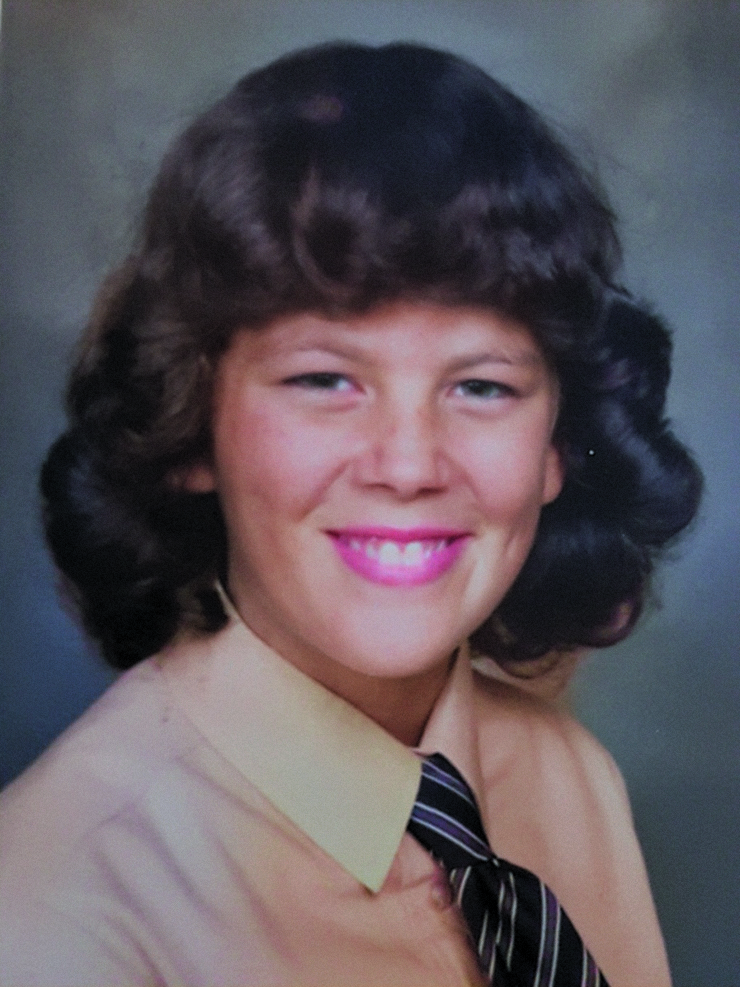
Lis aged 13
After the accident
"Later, my mum drove me to the hospital to see Sammy, but she had been transferred to a neurological hospital. Sammy died there four days later – my mum took the call and my worst fears became reality.
Sign up to our free daily email for the latest royal and entertainment news, interesting opinion, expert advice on styling and beauty trends, and no-nonsense guides to the health and wellness questions you want answered.
"I was interviewed by the police, and one of them asked if I’d argued with Sammy that morning. It seemed as if they thought I’d done it on purpose, and I was terrified of going to prison. I never did, of course – it was an awful, tragic accident.
"But I spent the next three decades punishing myself every single day.
"Back at school, I felt everyone’s eyes on me. The bullying stopped and no one directly accused me of killing Sammy. Instead, everyone kept me at arm’s length. I became an outsider.
"At home, my stepfather forbade anyone from talking about what had happened.
"My older sister was supportive but the repercussions of the accident had affected her too. Although Sammy’s parents never blamed me and were incredibly compassionate, I retreated into what felt like a glass cage – life was happening all around me but I was trapped inside, looking out.
"There was no counselling, and I felt completely responsible for Sammy’s death and internalised the belief that I was evil.
"I buried myself in my studies and went to university, where I started to unravel. I self-medicated with drugs and got heavily into the clubbing scene – it gave me a sense of belonging.
"I was missing lectures and when my tutor called me, I started crying and couldn’t stop. She was supportive but I was let down by the medical profession. The doctor I spoke to was unsympathetic, but I did manage to continue at uni and obtain my degree."
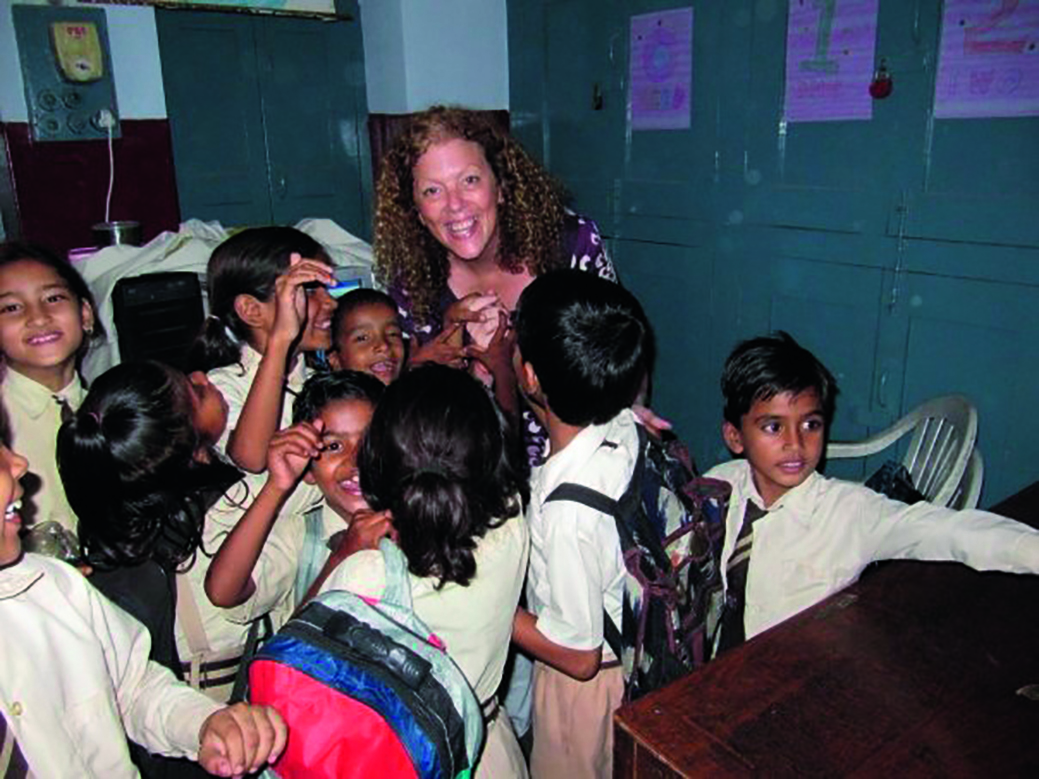
Lis teaching in India
Suffering flashbacks
"During my 20s, I managed to hold down a job in sales but indulged in increasingly self-destructive behaviour. My drug use intensified and I was drawn to abusive men.
"I put on a confident front and didn’t talk to friends about what had happened. But I lived with the accident every day of my life, suffering flashbacks, nightmares, panic and rage. Now, I know I was living with undiagnosed PTSD but in my head, I was a bad person who deserved it all.
"In my late 20s, I realised my lifestyle was leading to disaster. I left London and spent much of my 30s travelling in India and Sri Lanka. I stopped taking drugs and explored meditation.
"Back in the UK, I retrained as a life coach, using techniques like mindfulness, and started learning to manage my trauma and apply self-compassion.
"But it wasn’t until my PTSD diagnosis at 46 that I began to heal properly. Trauma therapy took me back to the day of the accident and helped me to view it through a new, compassionate lens. I’d been terrified of looking inside myself because I thought I’d find a monster.
"Instead, I found a traumatised young girl, and began to understand that the responsibility for Sammy’s death did not lie with me but with the school. They should never have put a 13-year-old girl on the school field to measure the throws – it was against health and safety guidance. I was just an innocent teenager doing what I was told. Sammy and I were both victims that day."
Finding fulfilment

"I’m still impacted by what happened but now, life is good. I never had a family of my own because I spent so many years believing some terrible retribution would happen if I did.
"But I have amazing friends and family, and find fulfilment working as a mental wellbeing consultant. I do a lot of public speaking, drawing on my personal experience, often in support of The Forgiveness Project, which shares stories of transformation to help others cope with pain and trauma in their own lives.
"Six years ago, I wrote a memoir called This is Me, which was an Amazon bestseller.
"I met with Sammy’s mum and told her I’d written the book in honour of Sammy’s life. I was so moved when she said, ‘Lis, you really need to live your life for you now. I have always wanted you to be happy.’
"I can finally say that I’ve forgiven myself. Yes, I threw the javelin but I no longer carry the blame. Looking back at 13-year-old me, I wonder how I found the strength to survive the trauma. It’s been a long road but I’m proud of who I am today."
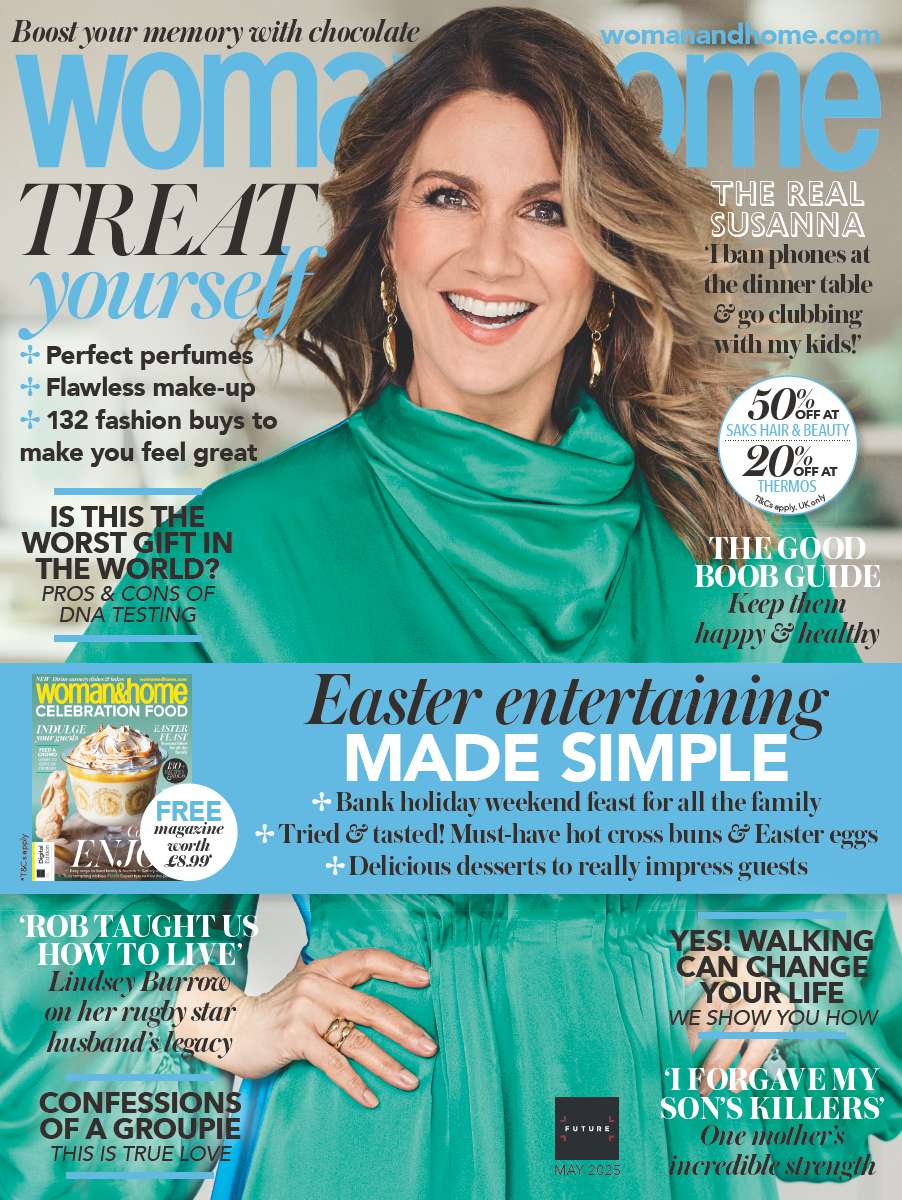
This article first appeared in the May 2025 issue of woman&home magazine. Subscribe to the magazine for £6 for 6 issues.
Helen is a writer and editor with many years’ experience as editor-in-chief. She’s written on a wide range of topics for both national publications and brands, and particularly enjoys interviewing anyone with a fascinating and moving tale to tell. She now specialises in features about food, health and real-life issues, particularly focusing on sensitive, awareness-raising interviews in support of charities and community groups.
You must confirm your public display name before commenting
Please logout and then login again, you will then be prompted to enter your display name.
